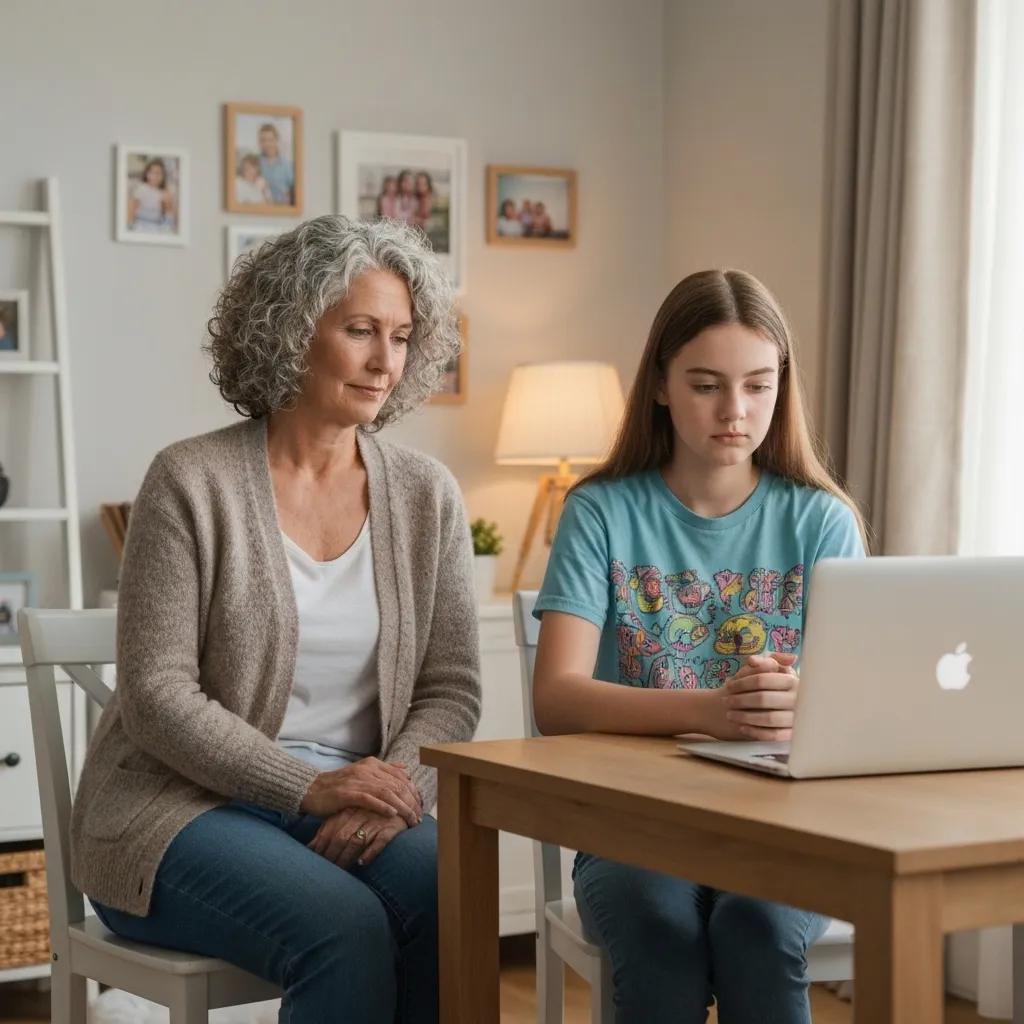Teen Anger Management Online: Effective Virtual Anger Management Programs For Teens to Help Control Anger
Anger issues affect up to 20% of adolescents, often disrupting school performance, peer relationships, and family harmony. By identifying common warning signs and leveraging evidence-based virtual interventions, teens can learn to channel frustration into healthy expression. In this article, we will explore the signs and causes of teen anger, explain how online anger management programs operate, describe practical coping skills, outline parental support strategies, and review program benefits and costs—empowering families to take the next step toward emotional resilience.
What Are the Common Signs and Causes of Anger Issues in Teenagers?
Anger issues in teenagers manifest through persistent irritability, frequent outbursts, verbal aggression, and underlying triggers such as hormonal fluctuations, academic pressure, family conflict, or co-occurring mental health concerns like anxiety or depression. These behaviors signal a dysregulation of emotional processing that, if unaddressed, can undermine social development and self-esteem, and set the stage for targeted intervention.
Understanding these red flags leads to a closer examination of the specific triggers and warning signals.
What Triggers Teen Anger and Emotional Outbursts?

Teen anger often stems from a combination of stressors and developmental shifts.
- Peer pressure and social rejection create feelings of isolation and hostility.
- Academic demands and performance anxiety overload coping capacity.
- Family tension and unresolved conflict trigger reactive aggression.
- Hormonal changes amplify mood swings and impulsivity.
Each trigger disrupts emotional balance and underscores the need for structured regulation techniques.
Building on trigger awareness, parents play a critical role in recognizing when professional support is required.
How Can Parents Recognize Signs of Anger Problems in Teens?
Parents can identify problematic anger through observable changes and behaviors:
- Sudden defiance or hostility toward family members.
- Frequent verbal outbursts or physical aggression.
- Withdrawal from social activities and peers.
- Declining academic performance and concentration.
Spotting these patterns early enables timely referral to supportive virtual programs that foster emotional control.
Early detection also highlights the risks of leaving teen anger unmanaged.

What Are the Consequences of Unmanaged Anger in Adolescents?
Unmanaged anger can erode trust, damage peer relationships, increase risk-taking behaviors, and exacerbate anxiety or depression. Academic disengagement and family discord often follow, potentially leading to substance use or involvement in conflict situations. Recognizing these outcomes underscores the importance of accessible, structured online interventions that rebuild self-regulation and social skills.
With these stakes in mind, the next section explains how virtual anger management programs translate evidence-based therapies into engaging online formats.
How Do Virtual Anger Management Programs for Teens Work?
Virtual anger management programs deliver interactive therapy modules, live video sessions, and progress tracking through secure platforms. By combining professional guidance with digital tools, these programs maintain engagement, privacy, and flexibility—allowing teens to learn coping strategies from home while caregivers monitor progress.
| Program Type | Delivery Format | Duration | Intensity |
|---|---|---|---|
| Online CBT Module | One-on-one video sessions | 6–12 weeks | Low |
| Virtual DBT Group | Weekly group video workshops | 8–16 weeks | Moderate |
| Intensive Outpatient | Daily video and chat sessions | 4–6 weeks | High |
These structured formats make therapy accessible and set the stage for mastering practical skills in subsequent sections.
What Is Online Cognitive Behavioral Therapy (CBT) for Teen Anger?
Online CBT for teen anger teaches youth to identify negative thought patterns that fuel frustration and replace them with constructive self-talk and problem-solving approaches. This method builds emotional regulation by linking thoughts to feelings and behaviors, promoting lasting control over anger and improving daily functioning.
Cognitive Behavioral Therapy (CBT) for Teens - Talkspace
Talkspace, Cognitive Behavioral Therapy (CBT) for Teens (2024)
This source supports the effectiveness of CBT in treating various mental health conditions in adolescents, which is relevant to the article’s discussion of CBT as a therapeutic approach.
How Does Dialectical Behavior Therapy (DBT) Help Teens Regulate Emotions Online?
Virtual DBT sessions equip adolescents with mindfulness practices, distress-tolerance exercises, emotion-regulation drills, and interpersonal effectiveness skills. By integrating real-time group feedback and interactive assignments, DBT reduces emotional reactivity and strengthens resilience in challenging situations.
Efficacy of Dialectical Behavioral Therapy Skills in Addressing Emotional Dysregulation Among Adolescents: A Systematic Literature Review - ERIC
ERIC, Efficacy of Dialectical Behavioral Therapy Skills in Addressing Emotional Dysregulation Among Adolescents: A Systematic Literature Review (2024)
This source supports the effectiveness of DBT in addressing emotional dysregulation in adolescents, which is relevant to the article’s discussion of DBT as a therapeutic approach.
What Are the Features of Virtual Intensive Outpatient Programs (IOP) for Teens?
Intensive outpatient programs provide comprehensive support through:
- Daily individual check-ins with a licensed therapist.
- Group skill-building workshops on emotional regulation and communication.
- Family education modules to align home and therapy goals.
This high-frequency model accelerates progress and fosters community connection, preparing teens for independent self-management.
Mastery of these formats leads directly into learning core practical skills in online anger management programs.
What Practical Skills Do Teens Learn in Online Anger Management Programs?
Virtual anger management teaches teens to monitor triggers, regulate intense emotions, and express needs constructively. Integrating digital exercises with therapist feedback cultivates accountability, builds self-awareness, and enhances problem-solving capacity for real-world challenges.
Which Emotional Regulation Techniques Are Taught to Teens?
Online programs introduce deep-breathing protocols, guided mindfulness routines, and progressive muscle relaxation sequences that rapidly reduce physiological arousal and restore calm.
Helping your child or teenager manage their anger - Parent Talk - Action for Children
Action for Children, Parent Talk (2025)
This source provides practical advice for parents on how to help their children manage anger, which aligns with the article’s focus on practical skills and parental support.
What Coping Skills Help Teens Manage Anger Effectively?
Teens learn to journal emotional experiences, use time-out strategies to pause before reacting, and apply positive self-talk scripts to reinterpret stressful situations. These tools break the automatic anger cycle and foster thoughtful responses.
How Are Communication Skills Improved for Healthier Expression?
Therapy modules guide adolescents through assertiveness training, active listening drills, and “I-statement” practice that transform confrontational exchanges into constructive dialogue. This foundation enhances relationships and prevents escalation.
With teens developing personal skills, caregivers can now reinforce progress through supportive strategies.
How Can Parents Support Their Teens During Virtual Anger Therapy?

Active parental involvement amplifies therapy outcomes by modeling calm behavior, reinforcing progress, and ensuring a stable home environment. When caregivers understand therapy goals, they create a consistent support system that empowers lasting emotional growth.
What Parenting Strategies Help Manage Angry Teens?
Parents can set clear behavioral expectations, validate adolescent feelings without endorsing aggression, and use positive reinforcement when teens apply coping skills. These approaches strengthen trust and encourage continued engagement.
Parenting an Angry, Explosive Teen: What You Should—and Shouldn't—Do
This source supports the article’s emphasis on parental strategies for managing teen anger, specifically highlighting the importance of a calm and neutral approach.
How Can Parents Facilitate Teen Participation in Online Therapy?
By providing a quiet, private space for sessions, assisting with technology setup, and scheduling consistent appointment reminders, parents remove barriers to attendance and demonstrate commitment to their teen’s success.
As families invest in support, it is essential to weigh the advantages and costs of virtual programs.
What Are the Benefits and Costs of Virtual Anger Management Programs for Youth?
Virtual programs offer convenience, privacy, and continuity of care, while often costing less than in-person therapy. Teens gain access to specialized adolescent practitioners without geographic constraints, leading to improved adherence and better outcomes in emotional regulation and interpersonal functioning.
| Aspect | Improvement | Outcome |
|---|---|---|
| Emotional control | Teaches self-regulation skills | Fewer outbursts |
| Peer interaction | Practice social scenarios | Stronger friendships |
| Family communication | Parent-teen modules | Better relationships |
These benefits illustrate the transformative impact of structured online therapy on teen well-being and relationships.
What Is the Typical Cost and Is Insurance Accepted for Online Teen Therapy?
Virtual anger management programs generally range from $100 to $200 per weekly session, with many providers accepting major health insurance plans and offering sliding-scale fees. Initial assessments may be offered at reduced or complimentary rates to ensure access for all families.
Empowered by this information, caregivers and teens can confidently explore virtual therapy options that suit their needs and budgets.
Moving forward, connecting with a professional team can kick-start the journey to healthier emotional expression and stronger family bonds.









